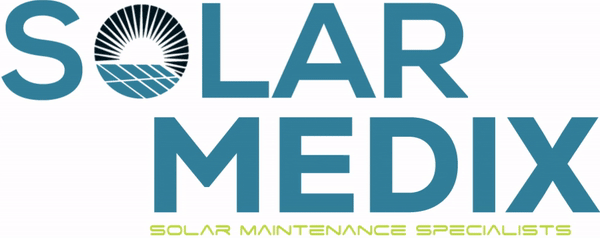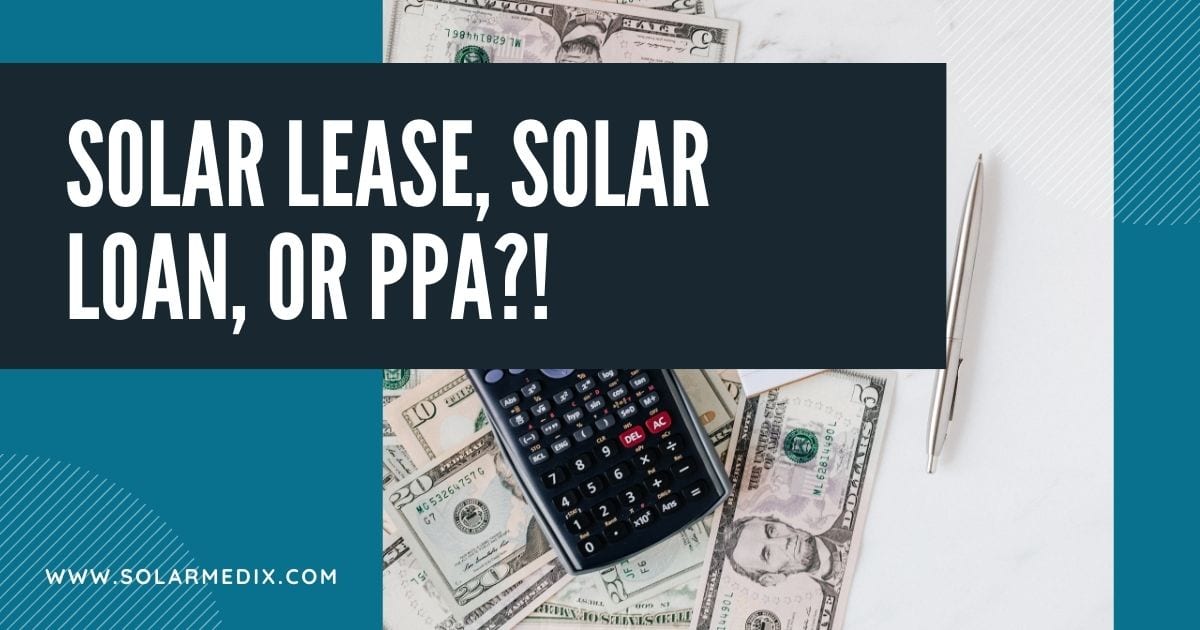One of the biggest decisions you will ever make when choosing to use solar energy is the financing method. As a homeowner or business, this is where the rubber meets the road as it determines the long-term satisfaction and value from going green. There are many different choices between a solar lease, loan, or ppa.
The last thing you ever need is dealing with buyer’s remorse after making a financial decision about that solar system. This means that you need to thoroughly evaluate all your financing options before you make that leap.
But isn’t solar supposed to be affordable regardless of how I finance it?
The truth about owning or installing a solar system
The selling point of solar energy is that it is an affordable and clean energy source. While there is no doubt about the financial benefits of producing energy from an infinite and renewable source, it is not so easy.
Since there are different financing options that you can opt for, not all of them will give you similar value or savings in the long run. So before you buy into the hype, it counts to consider whether the decision you go for will be a smart investment that will not leave you with any regrets.
Unfortunately, most people only purchase things based on the monthly payment and not the total cost. Interest can be the difference between a highly profitable investment or something that makes pennies on the dollar.
Solar Lease vs. Solar Loan vs. PPA
The three main financing options available for homeowners and businesses that want to install solar systems are:
- Solar lease
- Solar loan
- PPA.
Let’s take a look at what each entails and how different they are from another so that you can make the smart choice.
Solar Lease
Solar lease uses a financial model that is similar to leasing a car. By opting for this solar financing option, you will not have to pay any upfront costs but will be expected to make fixed monthly payments. The monthly lease plan is clear right from the start, and you will get to know the amount you are expected to pay all year long.
Most importantly, since you are leasing the solar system, you do not get full ownership but only enjoy its use during the lease period that can last for 20+ years.
The advantages of solar leasing
- A solar lease allows you to reap the benefits of owning a solar system without making an upfront payment. This makes it a suitable option for individuals that are low on cash but can easily sustain making monthly payments.
- Solar leasing is perfect for homeowners and businesses that do not want to own solar systems permanently. Suppose you live in rented or leased premises, then it makes sense to settle for a solar lease as you never have to worry about uninstalling and relocating with the entire system after your lease period expires.
- A solar lease allows you to enjoy an extended warranty that covers the entire lease period. The good part about solar leasing is that you never have to worry about the state and maintenance of your solar system. All these crucial aspects are covered, and all you have to do is keep up your monthly payments to enjoy clean energy.
Solar Loan
Solar loans are a great financing option if you plan to own a solar system but do not have enough money to make cash payments. You will be required to make monthly payments, and these payments are dependent on the interest rates and the payment period.
Advantages of opting for a solar loan
- It saves you from the burden of making a full cash payment for your entire solar system. The initial cost of investing in solar energy can be too high, but solar loans allow you to avoid this.
- Once you have paid off the loan, you get to own the solar system. Unlike solar leasing, the aim of going for a solar loan is to have full ownership of the solar system once you have paid off the loan.
- It is a great option if you have a good credit score. If you have a good credit score, then a solar loan will be an attractive option. This is because you are likely to pay lower interest rates and have the immediate benefits of having a renewable source of energy.
Solar PPA
Solar Purchase Power Agreement (PPA) is often confused with solar leasing, but they involve very different terms and conditions. Under a solar PPA, you do not lease the solar system or pay a loan to own it; instead, you get to pay for the amount of energy produced and used.
You are essentially getting into an agreement with a solar company where you will pay for each kilowatt-hour (kWh) of energy used. The catch here is that the price you pay per kWh will be lower than what your utility company charges for the same.
For example, if the utility company charges you $0.18 per kWh, then the solar PPA could charge $0.14 per kWh. In the end, you aim to make savings on what would have been paid to the utility company while enjoying the benefits of clean energy.
Note: The actual PPA costs depend on several factors, and it is never constant. Instead, it depends on several factors such as location, cost of electricity, and installer conditions that will be made known by the solar company.
Advantages of Solar PPA
- You only pay for the solar energy used. Solar PPA gives you similar benefits to being connected to a utility grid where you only pay for the energy consumed. This means that you will pay lower charges on months when not enough solar power is generated, unlike in lease and loan options where you pay a fixed monthly rate.
- You never have to worry about solar maintenance and ownership costs. The solar company will be responsible for all maintenance requirements as they strive to ensure maximum energy production for better profits.
Bottom-line
Opting for solar is a fantastic option, but that is always the beginning of a journey that demands the right type of financing. Luckily, you have three options to opt for, and these are – solar lease, solar loan, and solar PPA.
All these options come in handy in different situations, and before you rush into making any decision, you need to ensure the financing option suits your needs. Ultimately, what counts is the long-term value and satisfaction gained from choosing solar energy. If you have any questions, contact us today.













